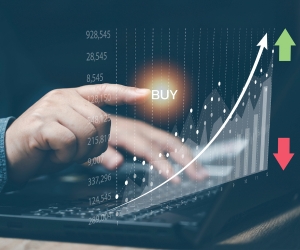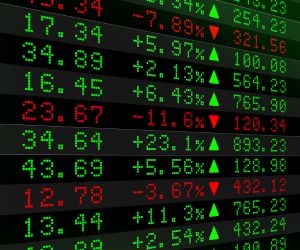Unilever is a leading multinational consumer goods company, known for its wide range of products in the food, beverage, cleaning, and personal care sectors. Listed on the London Stock Exchange, Unilever's strong portfolio of global brands and commitment to sustainability make it a key player in its industry. Is it a good investment then? Are there potential risks? What investment strategy should you consider for this stock? This article will answer these questions and more.

Steps to Invest in Unilever
Research and Analysis:
Unilever is one of the largest consumer goods companies in the world. Review its financial statements and the performance of its global brands. The evolution of the British pound can affect its competitiveness and profit margins.Open an Investment Account:
Unilever is listed on the London Stock Exchange (LSE) under the ticker ULVR. To invest, open an account with a brokerage that has access to this market. Normally, you will be asked for a form of ID and a utility bill (such as from an electricity or water company) to verify your identity and address. Compare the fees, trading platforms, and services offered by each brokerage to choose the one that best suits your needs.Define Your Investment Strategy:
Unilever is a solid company with a stable dividend policy. It is an attractive option for long-term investors looking for stability and gradual growth.Execution and Monitoring:
Place the purchase order and track Unilever's performance by monitoring its financial reports, changes in consumer trends, and the evolution of the GBP if you are trading in another currency.Diversify Your Portfolio:
Unilever offers stability in the consumer sector. For greater balance, diversify with assets in sectors with lower correlation to mass consumption.
SWOT Analysis of Unilever as an Investment
This SWOT analysis evaluates Unilever, a leading global consumer goods company, recognized for its product diversification and strong global presence in the food, personal care, and cleaning sectors.
Strengths:
Diversified Portfolio: Unilever has a wide range of leading brands that allow it to diversify its revenue streams.
Global Presence: It operates in numerous countries, enabling it to capture different market segments and mitigate geographic risks.
Strong Focus on Sustainability: Its sustainability initiatives and corporate social responsibility reinforce brand image and attract conscious consumers.
Economies of Scale: Its large size allows for cost optimization in production and distribution.
Weaknesses:
Dependence on Raw Materials: Price variability of inputs can affect its margins.
Operational Complexity: Managing such a broad product portfolio can present challenges in efficiency and coordination.
Regulatory Risks: Operating in multiple jurisdictions means confronting various regulations that may increase costs.
Opportunities:
Growth in Emerging Markets: Expansion in regions with increasing purchasing power provides opportunities for sales growth.
Innovation in Sustainable Products: Developing new lines of eco-friendly products can attract environmentally conscious consumers.
Expansion in E-commerce: Boosting online sales can diversify income channels and reduce operational costs.
Threats:
Intense Competition: The presence of strong competitors in the consumer goods sector can pressure prices and margins.
Global Economic Instability: International crises can affect consumer spending and demand.
Changes in Regulations: Health, safety, and environmental regulations can increase production costs.
What is an International Stock Broker?
An International Stock Broker is the entity (or platform) that allows you to buy and sell shares of companies listed on stock exchanges in different countries around the world. Unlike a local brokerage house, the primary focus of International Brokers is to offer access to global markets, such as the US, European, or Asian markets.
Why do we need an International Stock Broker?
Investing in international stocks can be an excellent way to diversify your portfolio, as it gives you the opportunity to participate in the growth of economies and sectors worldwide. However, operating in global markets is not as simple as in the local market: it requires specific knowledge, compliance with international regulations, and the use of advanced trading platforms.
An International Stock Broker brings together all these investment opportunities in one place and allows you to access different exchanges and trading conditions, in exchange for a commission.
Examples and comparisons:
There are several well-known International Stock Brokers, such as Interactive Brokers, eToro, TD Ameritrade, or Saxo Bank, among others. Each offers trading platforms with unique features and varying commissions depending on the service. Some are known for providing market advisory and analysis in various languages, while others may offer more competitive operating costs or social investment tools. These details allow you to choose the option that best suits your needs and investor profile.
Regulatory and security aspects
It is essential that the International Stock Broker you choose is regulated by recognized entities in the country where it operates, such as the U.S. Securities and Exchange Commission (SEC) in the United States, the Financial Conduct Authority (FCA) in the United Kingdom, or the Comissão de Valores Mobiliários (CVM) in Brazil, among others. This oversight ensures that the broker complies with strict security and transparency standards, providing you with greater confidence when investing your money.
How do Brokers "connect" to International Markets?
Through agreements with foreign stock exchanges and the use of advanced technological platforms, International Stock Brokers process the buy and sell orders placed by their clients. They organize transactions according to price, order of arrival, and other parameters, and charge a commission when the operation is executed. This technological infrastructure allows transactions to be carried out quickly and securely, facilitating real-time monitoring of your investments.
In conclusion, an International Stock Broker is your gateway to the world's most important stock markets. Thanks to its regulation, trading platforms, and knowledge of global markets, you can diversify your portfolio and seek growth opportunities in different sectors and countries.





